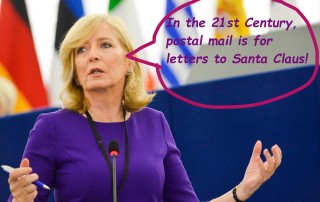EMPODERANDO AL PERIODISMO A TRAVÉS DEL DERECHO DE ACCESO A LA INFORMACIÓN
EL MANUAL ‘LEGAL LEAKS’ AYUDA A PERIODISTAS A OBTENER
INFORMACIÓN USANDO LAS LEYES DE ACCESO A LA INFORMACIÓN
Why is the right of access to information important for journalism?
A Guide for Journalists on How to Access Information
The Legal Leaks Toolkit, developed by Access Info Europe and n-ost, helps journalists access information using Access to Information laws. The Toolkit is available in a generic international version and can be adapted to the legal framework of any country. The existing national versions, translated into local languages, are available below. You can also read more below about our training programme and about how to contact
the Legal Leaks Help Desk.
Why do media experts think access to information is important?
Journalists, activists, and media experts speak about the importance of access to information in their daily work. Watch all interviews here!
That little detail in the relationship between journalists and sources, that little one, is so important that could change the way in which we tell stories.
It is extremely important that there is this mechanism that you can use as a journalist to say «Hang on a minute, you need to give us this, because we have a right to know».
It’s a great way to get stories, it’s a great way to fin out what governments in particular are doing, it’s a great way to find out where money goes, it’s a great way to prove accountability.
The right of access to information is very important for the journalists’ work; it’s important for everyday work, but it’s even more important for investigations.
Journalism is about investigation, it’s about asking questions; but it’s about documents as well, as a proof for questions, as a proof for answers
Basically, I need access to information to do my job as someone who is supposed to ensure the accountability of politicians, of public officials.
Cover photo: European Parliament via Flickr (CC BY-NC-ND 2.0)
ÚLTIMAS NOTICIAS SOBRE EMPODERANDO AL PERIODISMO
Access Info calls for greater transparency of Council of the EU in submission to European Ombudsman
Madrid, 3 January 2018 – Access Info has recommended that the Council of the European Union significantly increase transparency of the legislative process, in particular by providing the public with details on the positions that EU Member States take in negotiations on legislation. These recommendations were submitted to the European Ombudsman’s consultation held as part of her enquiry into transparency
Interior clasificó la lucha contra el crimen organizado para zafarse de la transparencia
El Confidencial | 25/12/2017 Español - Durante todo 2014, los ministerios y las empresas estatales se afanaron en prepararse para la entrada en vigor de la ley de transparencia prevista para diciembre de ese año. Todos lo hicieron adaptando sus sistemas al Portal de la Transparencia y creando las unidades de información (UIT) para la gestión interna de las solicitudes.
European Ombudsman Decision: Commission should stop requiring requesters to provide postal addresses
Madrid, 20 December 2017 – In response to a complaint by Access Info Europe, the European Ombudsman has concluded that the European Commission’s practice of verifying the identity of persons making requests for access to documents by asking for their postal addresses is “disrespectful of citizens and their fundamental rights under the EU Charter” and constitutes "maladministration". The Ombudsman's formal
Las Actas del Consejo de Ministros publicadas por primera vez en España
Madrid, 11 de diciembre de 2017 – Tras varios meses de investigación y solicitudes de acceso a la información, Access Info Europe, en colaboración con el periodista Jesús Escudero, publica la práctica totalidad de las Actas del Consejo de Ministros entre 1996 y 2017; una información de gran relevancia para saber cómo se toman las decisiones y que facilita la
Un vídeo de 15 minutos y PowerPoints: así entrena la UE a los «guardacostas» libios
El Confidencial | 30/11/2017 Español - Técnicas de interrogación, análisis de documentos o recomendaciones sobre cómo informar de un incidente. La Unión Europea ha reiterado la importancia del respeto a los derechos humanos con los refugiados en el marco de la operación Sophia, actuación que pretende desmantelar las redes de tráfico de inmigrantes en el mar Mediterráneo. En cambio, la
Disclosed documents reveal that EU training of Libyan Coast Guard makes negligible reference to human rights protection
Madrid, 30 November 2017 – Respect and protection of human rights are a negligible part of the EU’s training to the Libyan Coast Guard, as revealed by the training materials the European Border and Coast Guard Agency (Frontex) disclosed in response to an access to documents request. From a total of 20 documents – including a video – released, only




